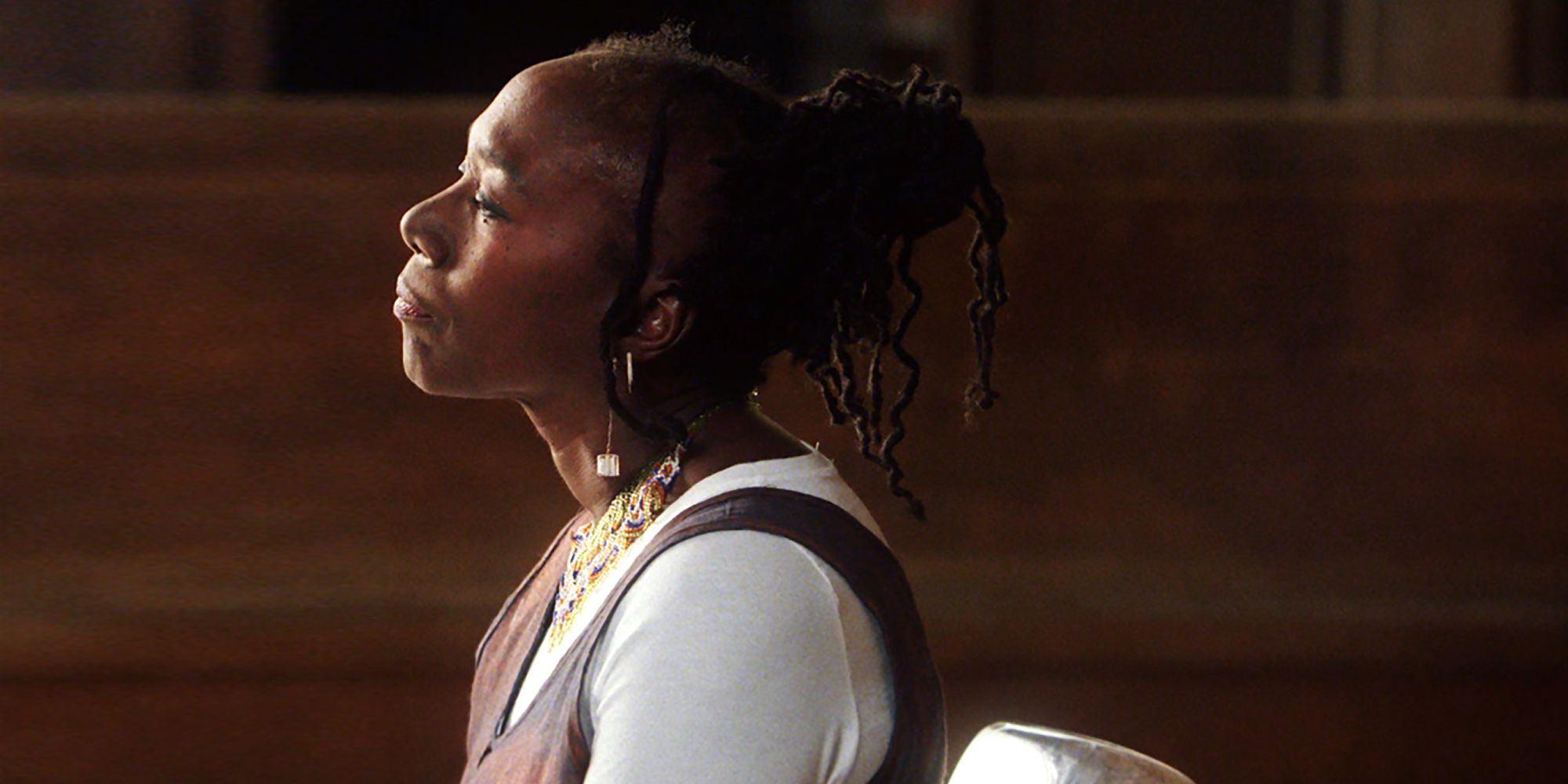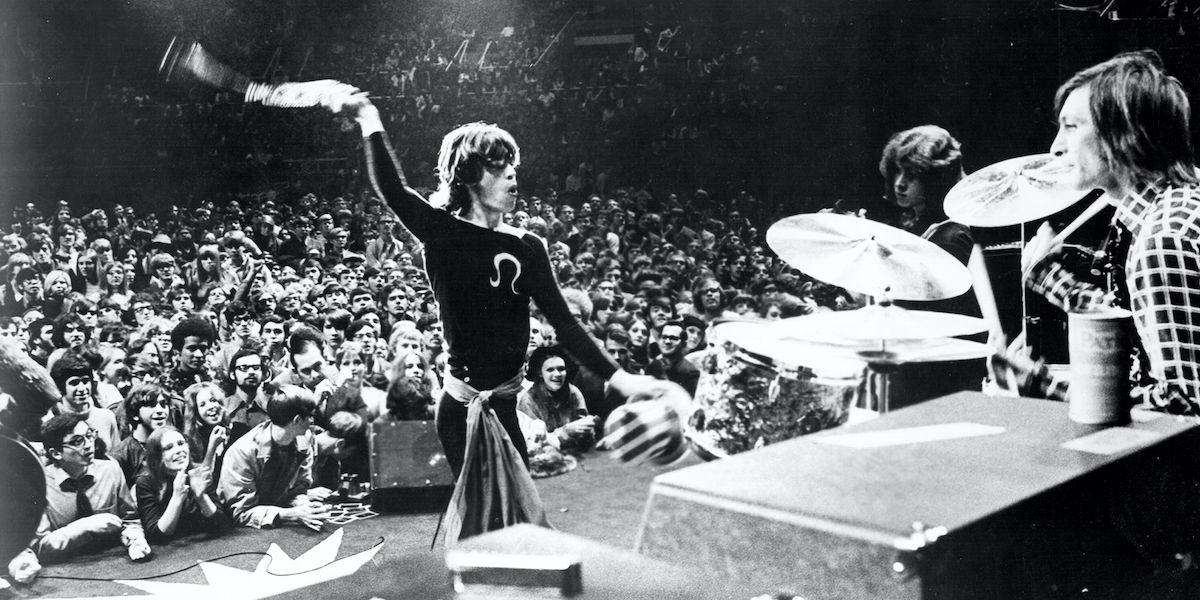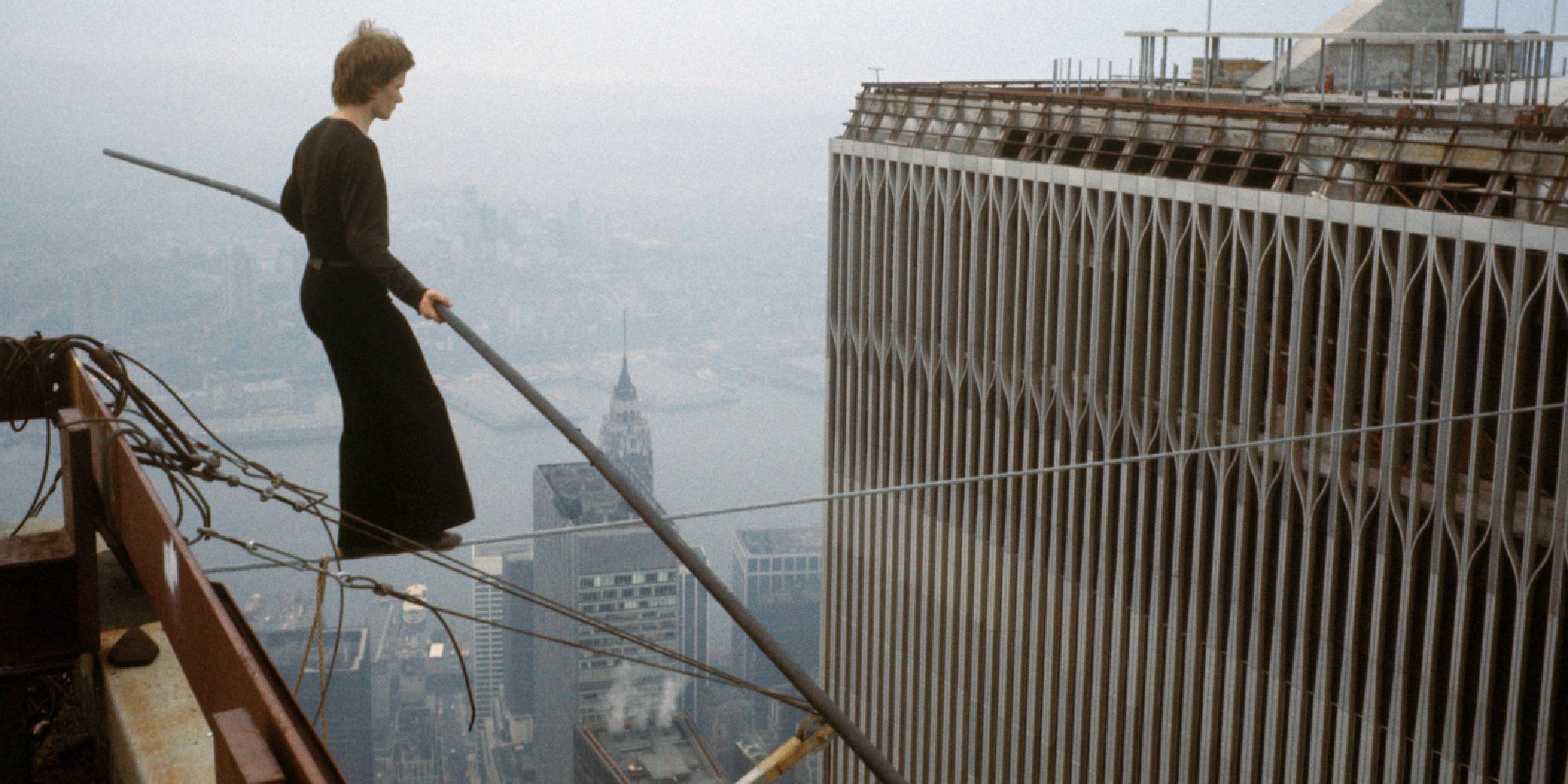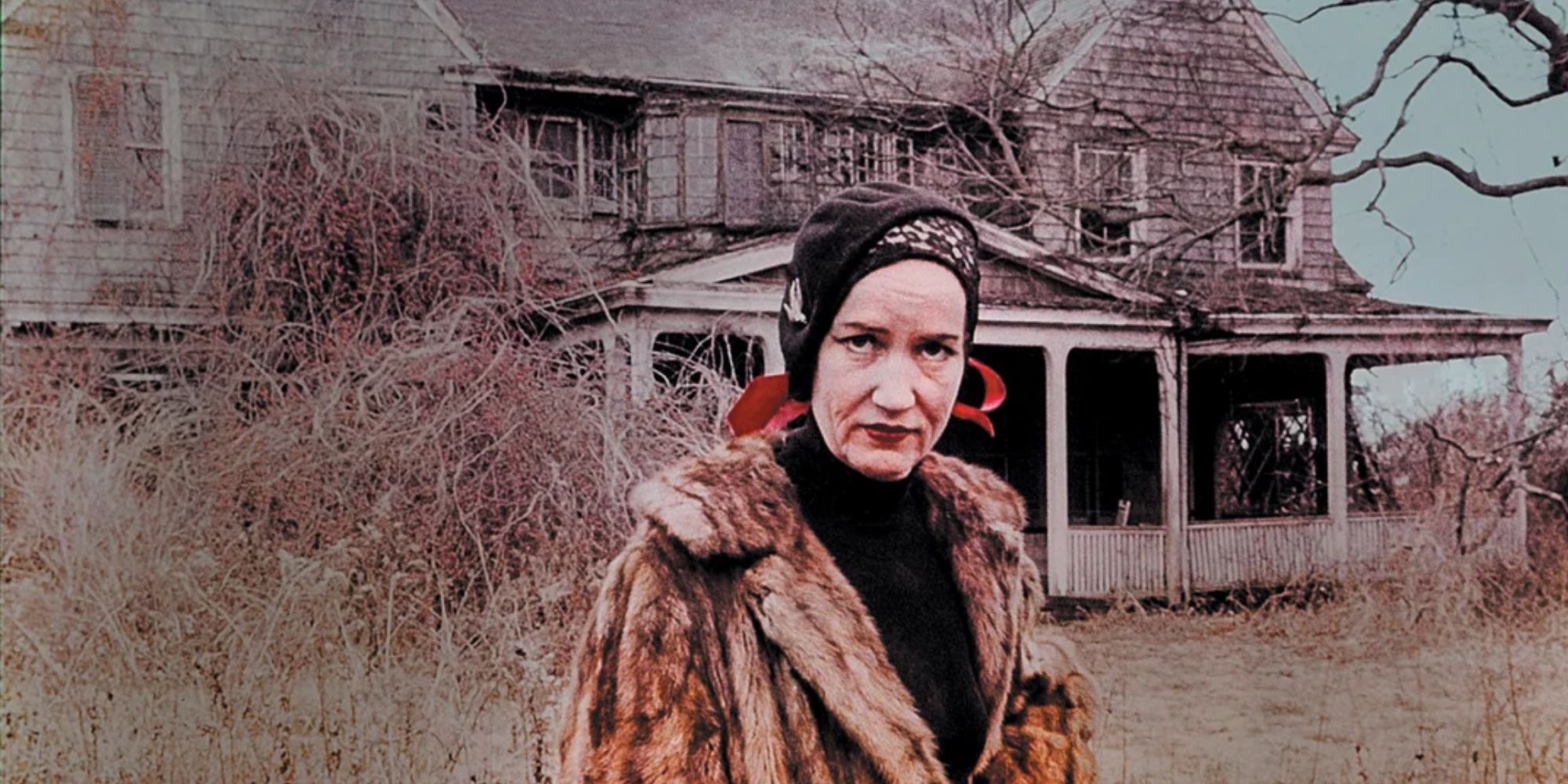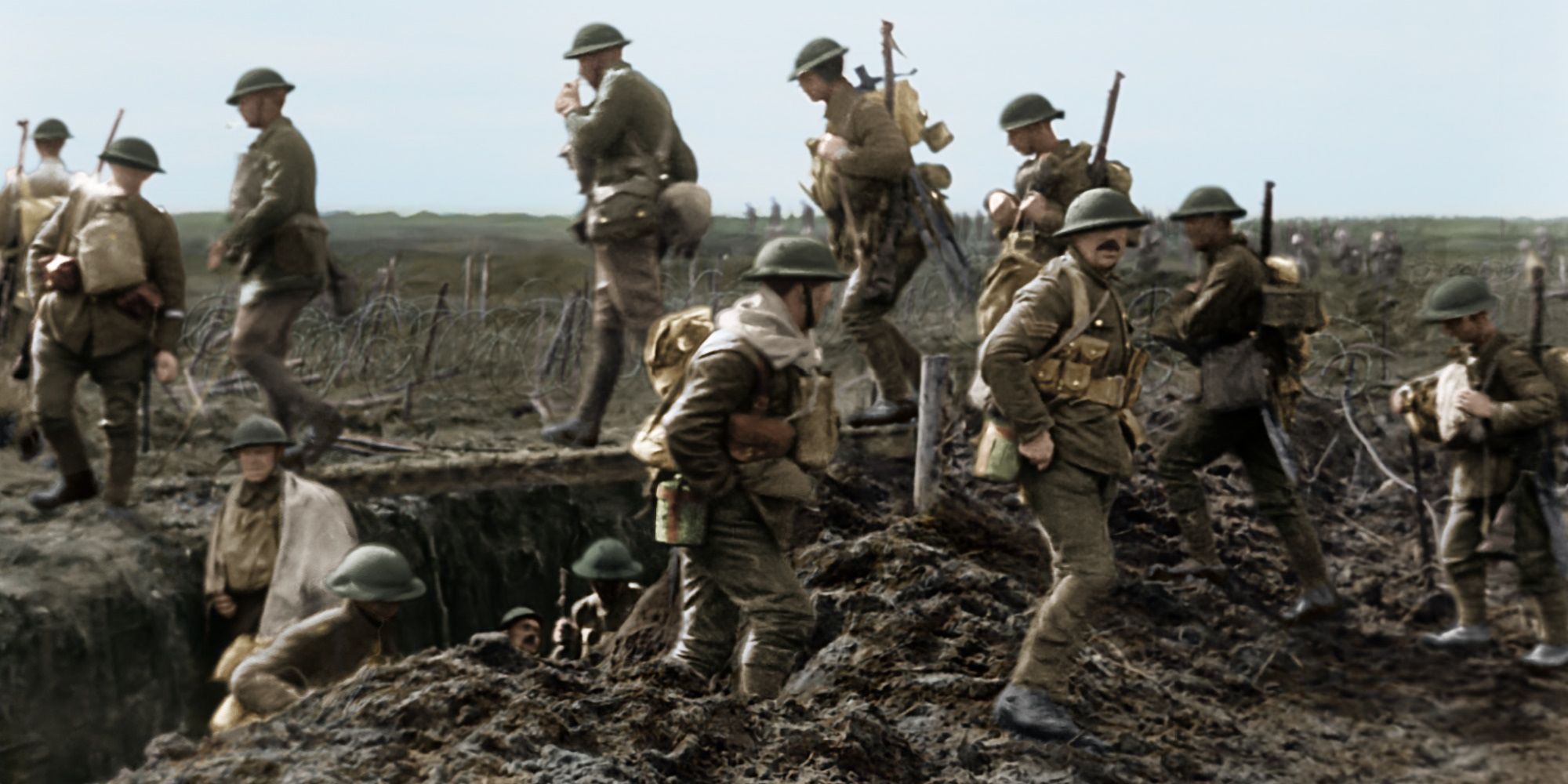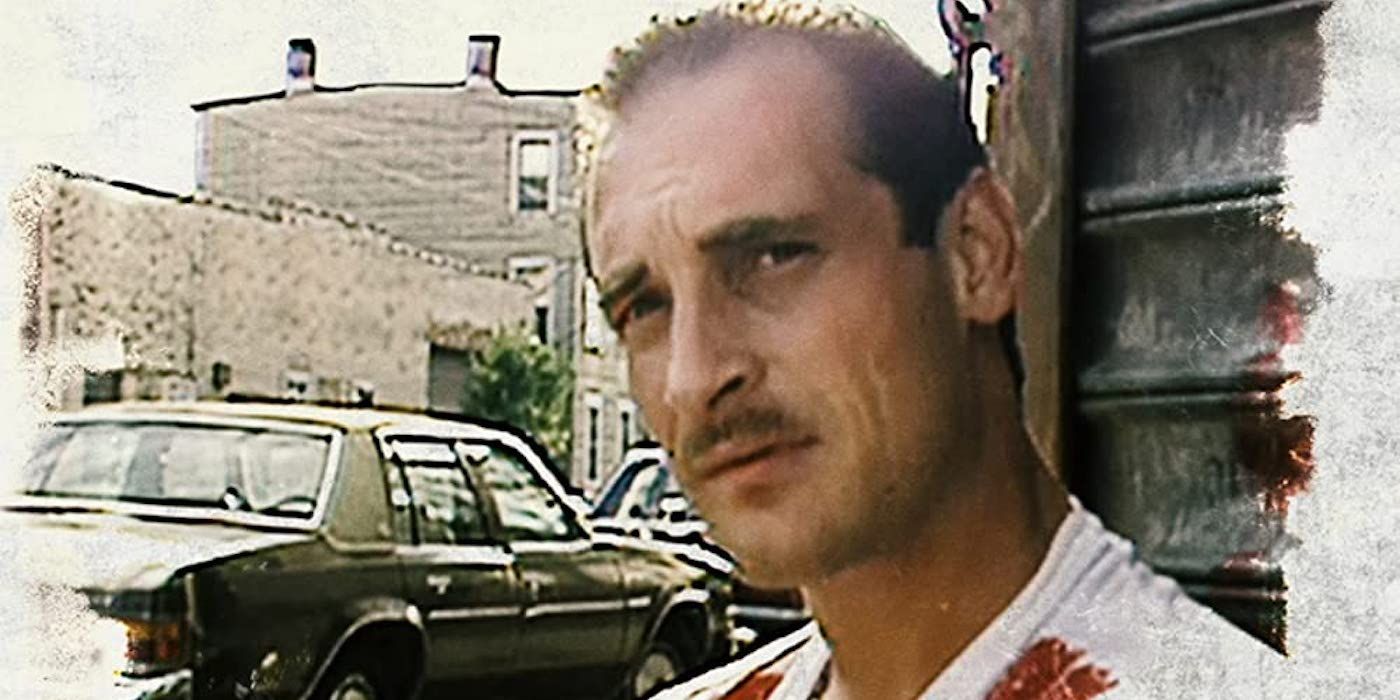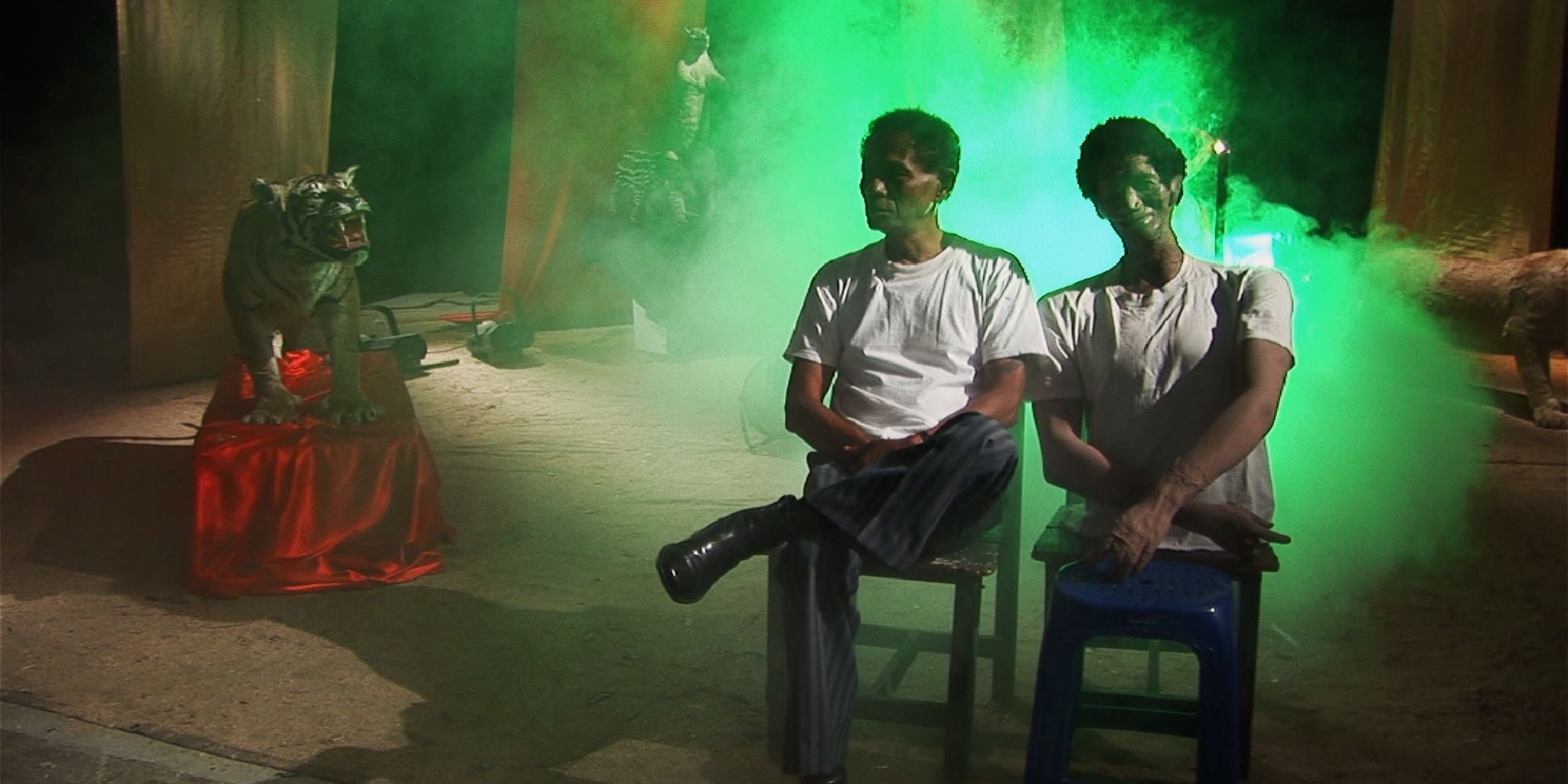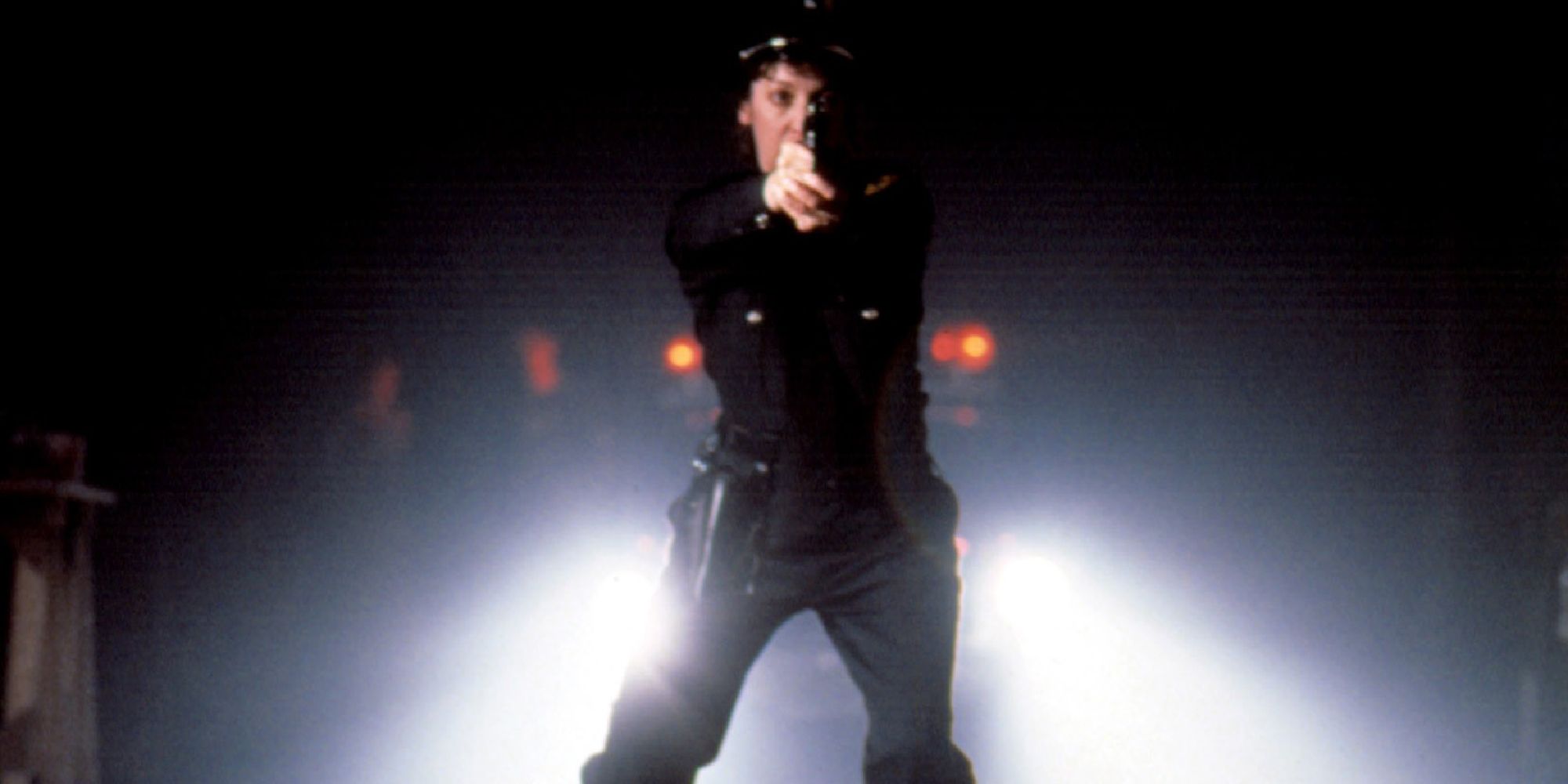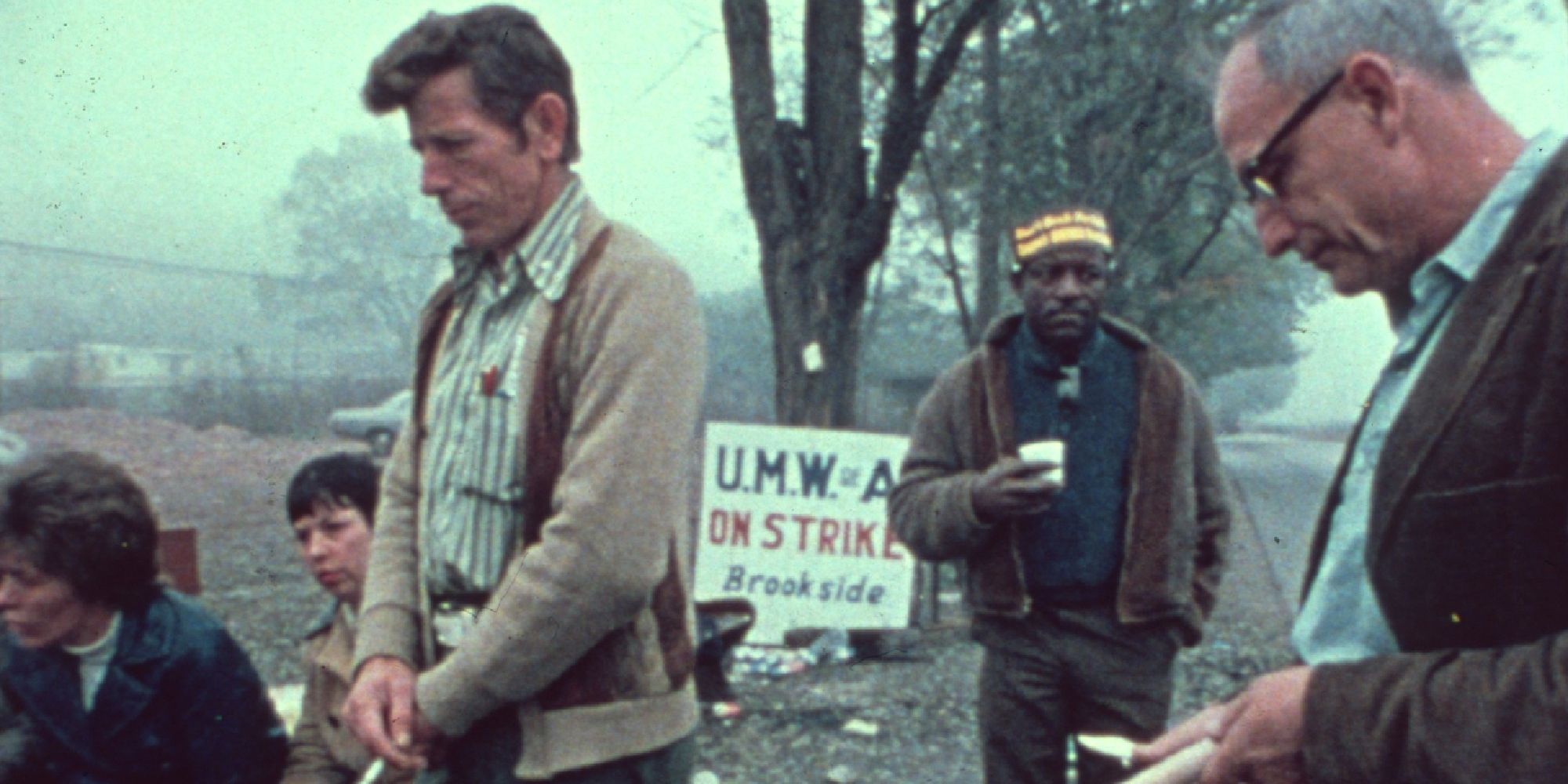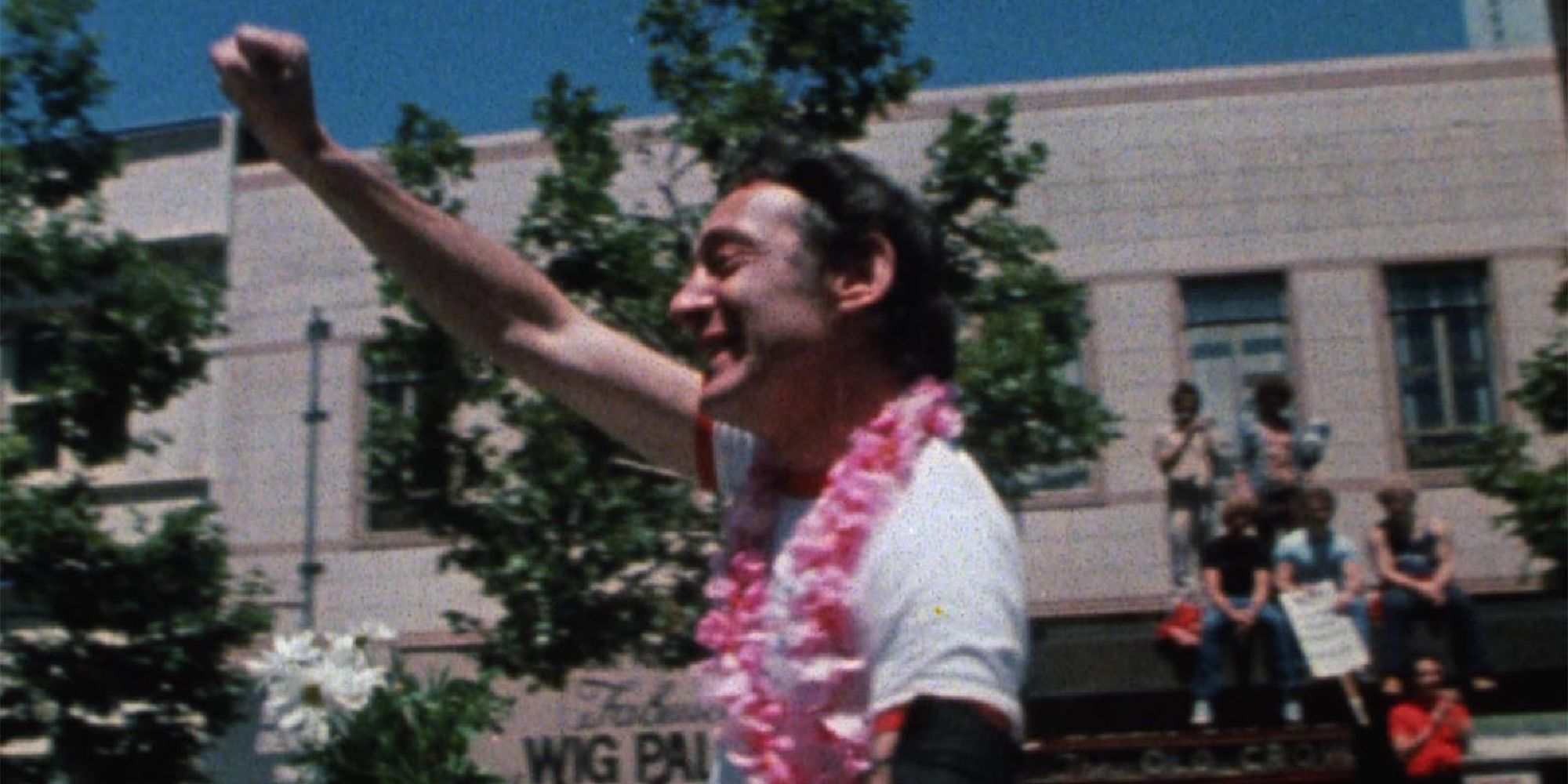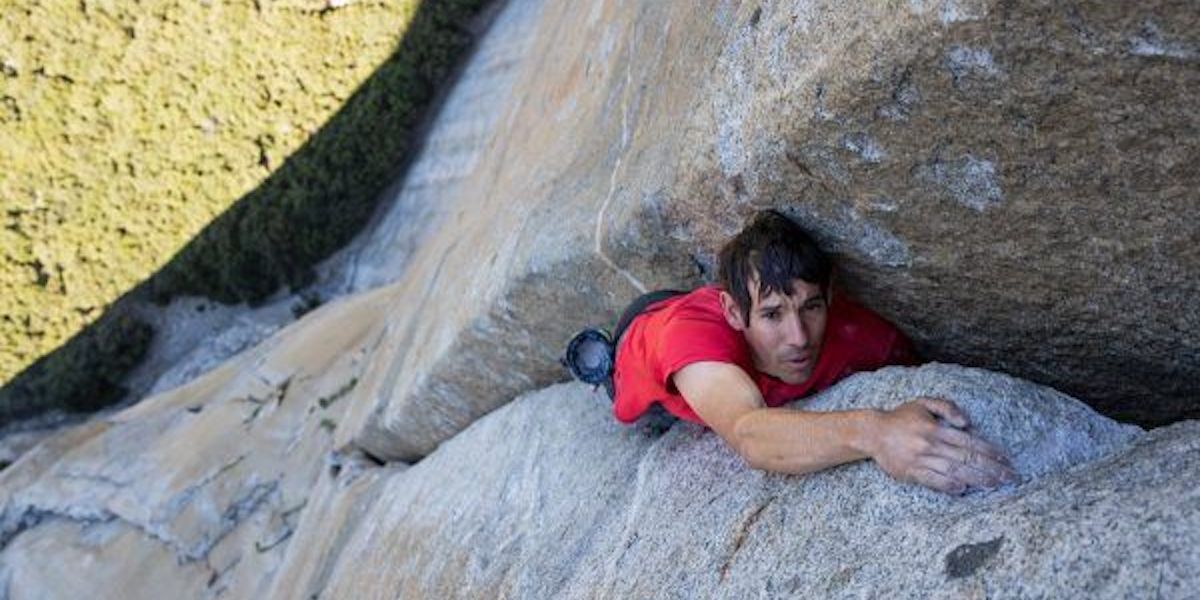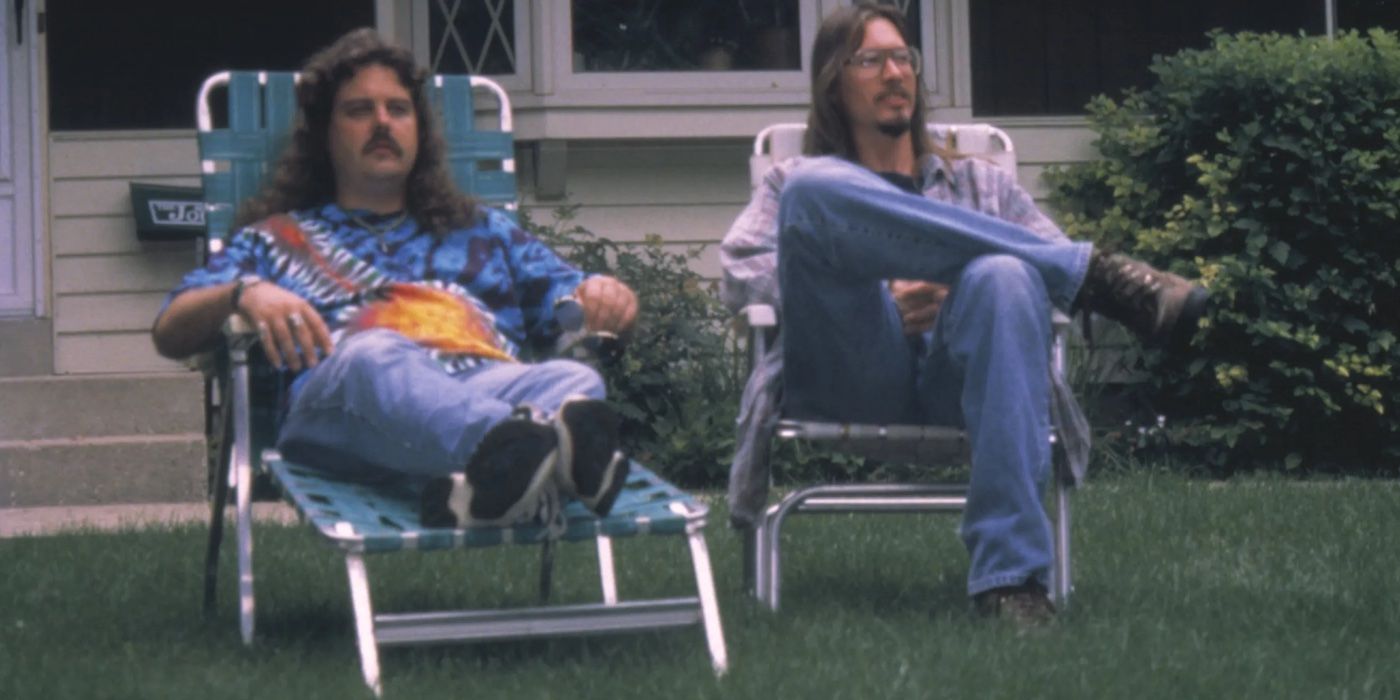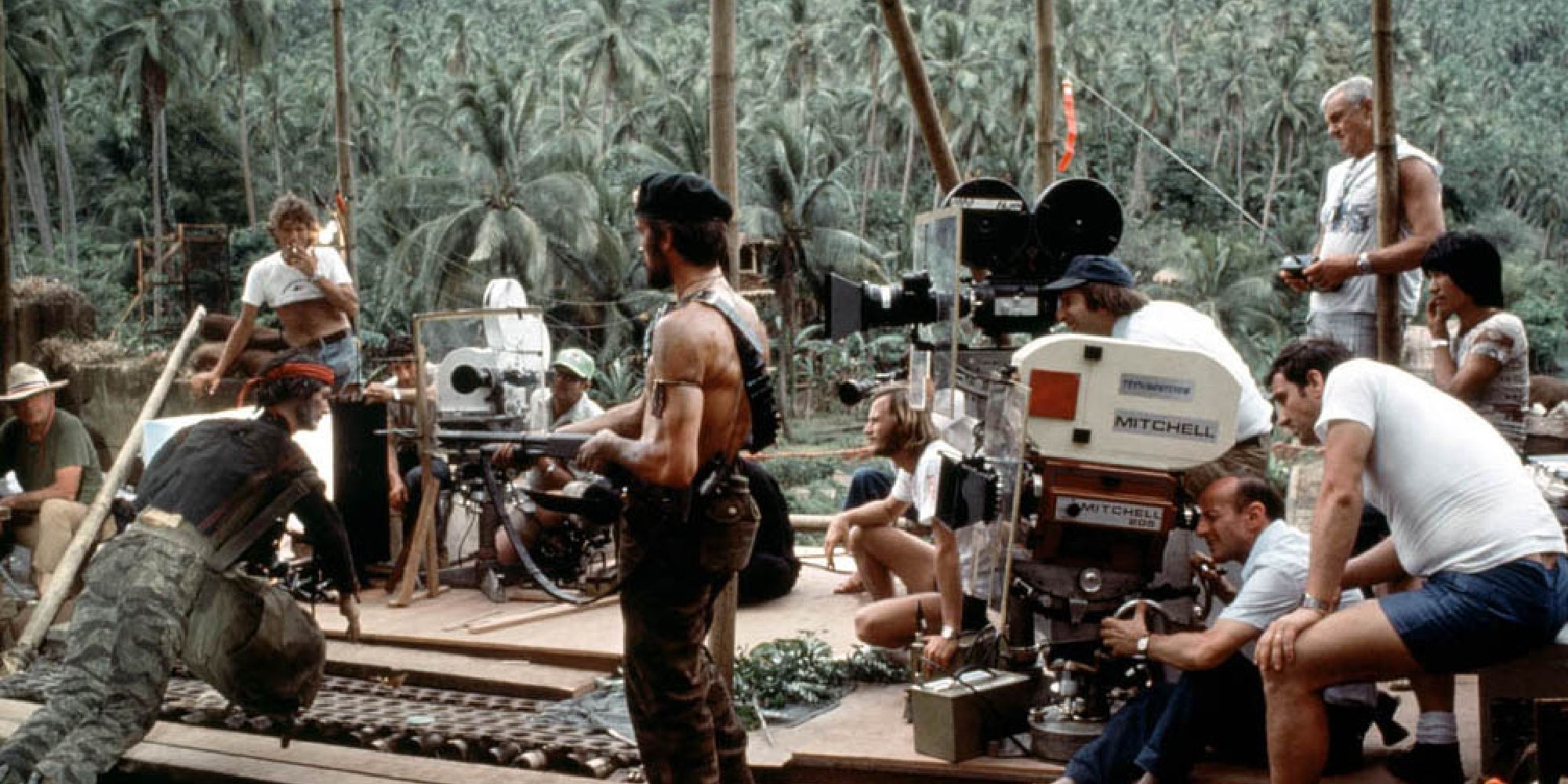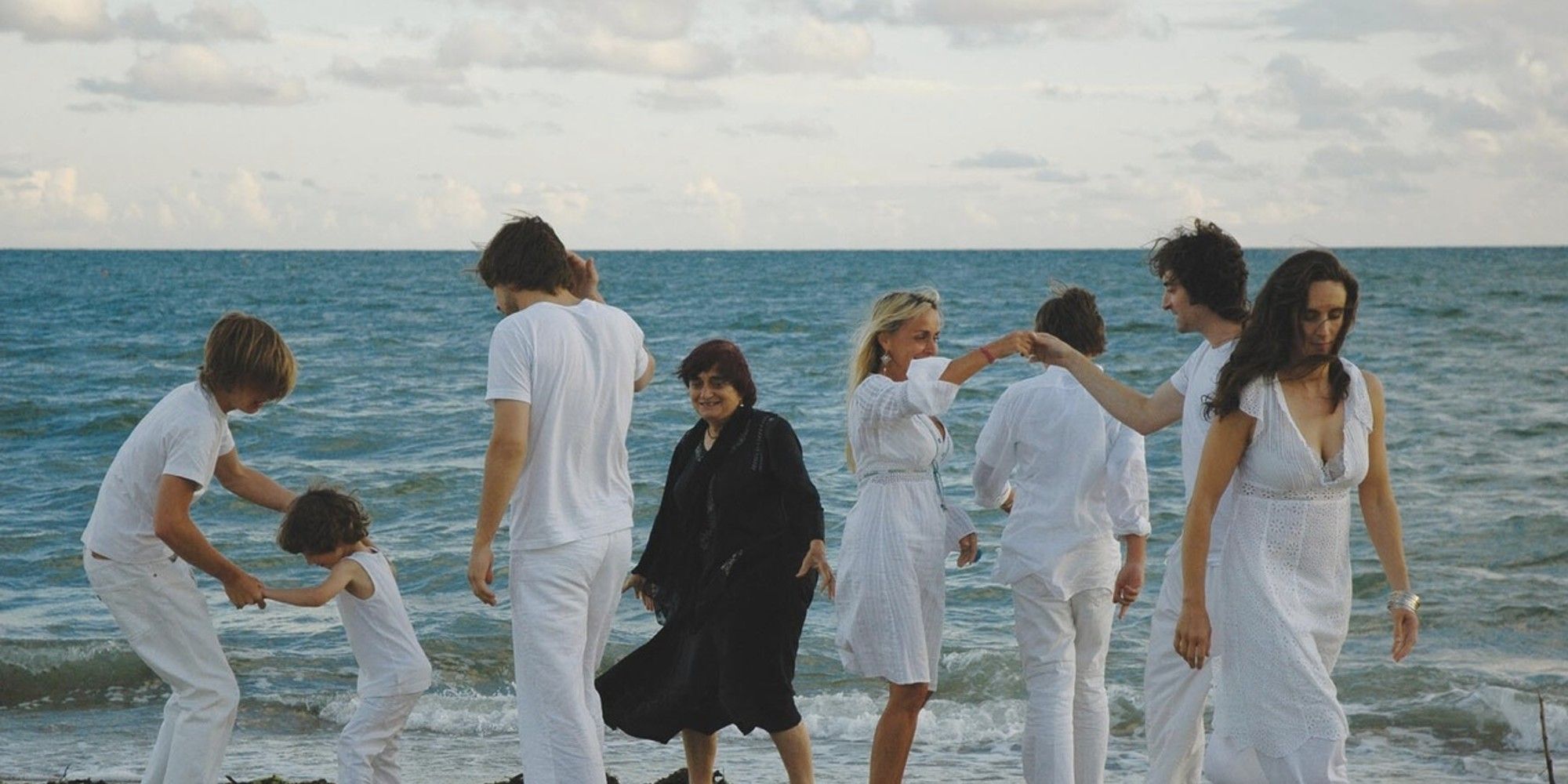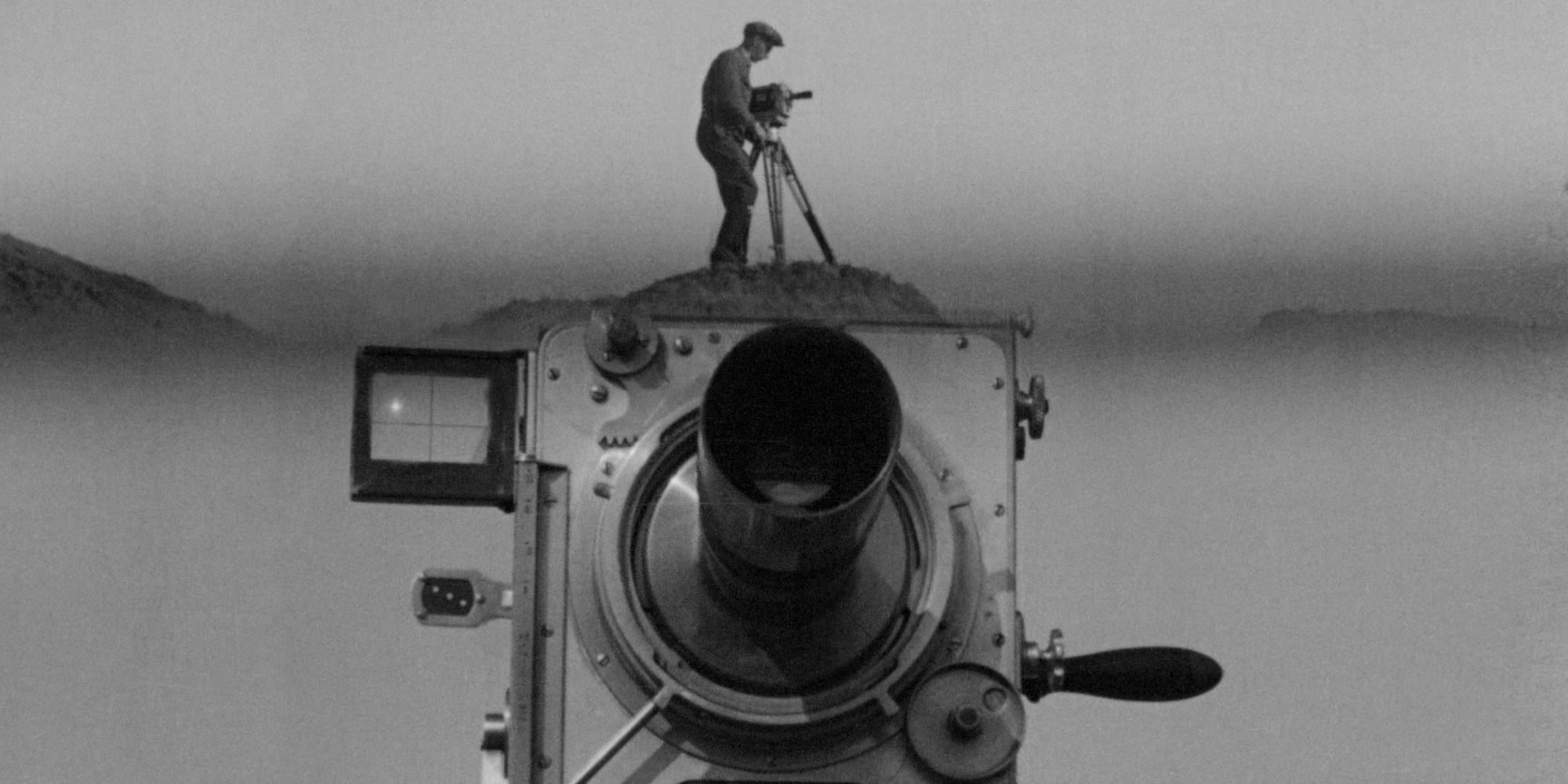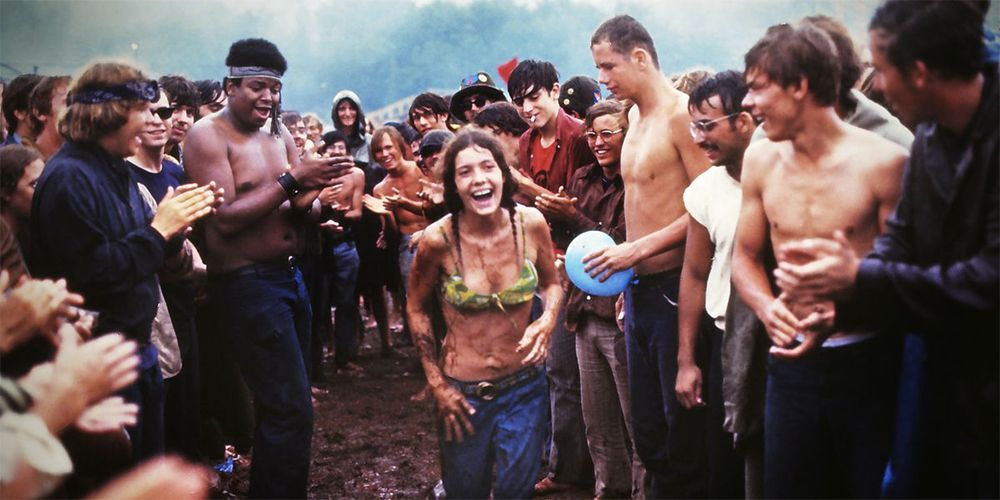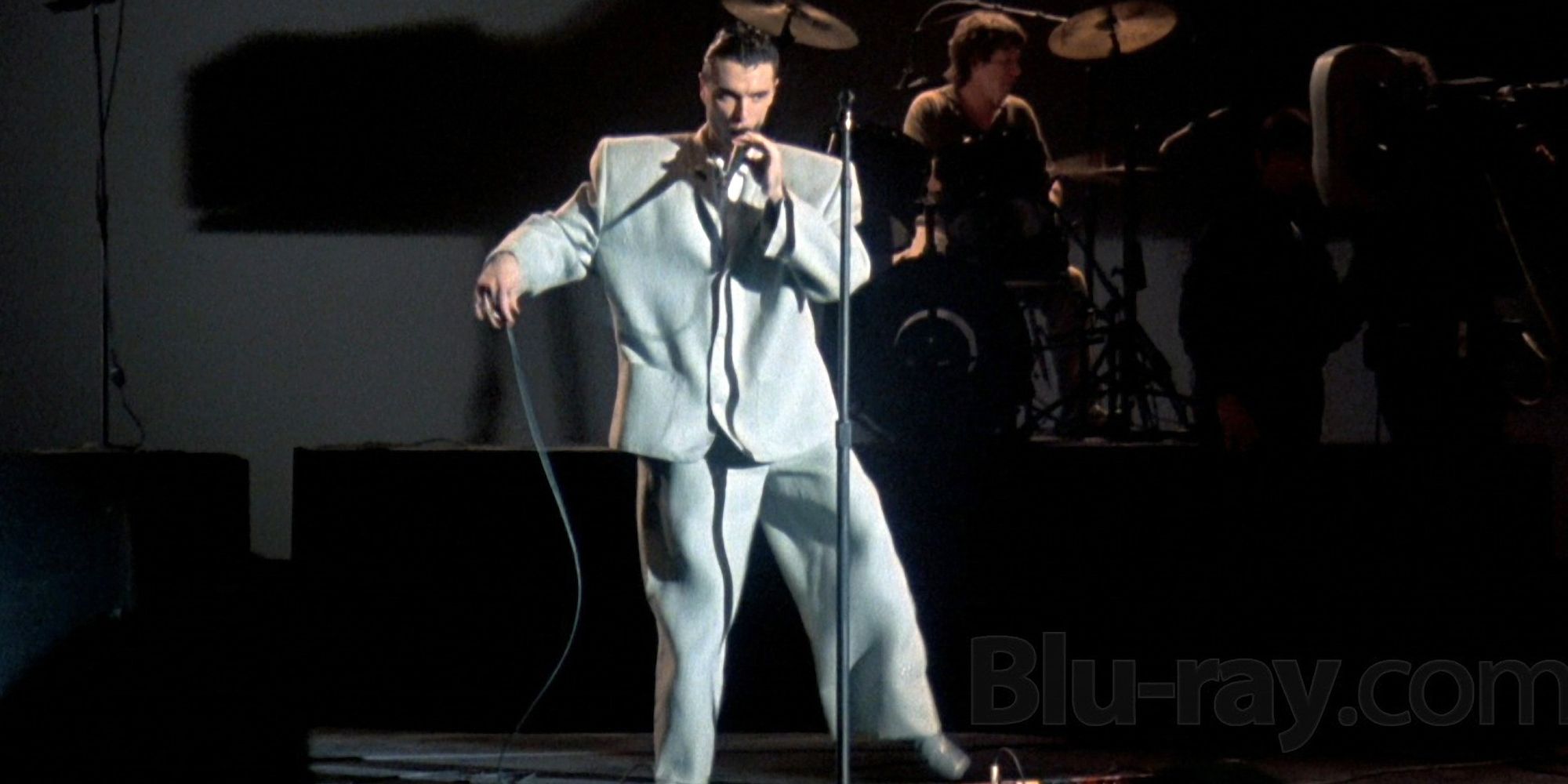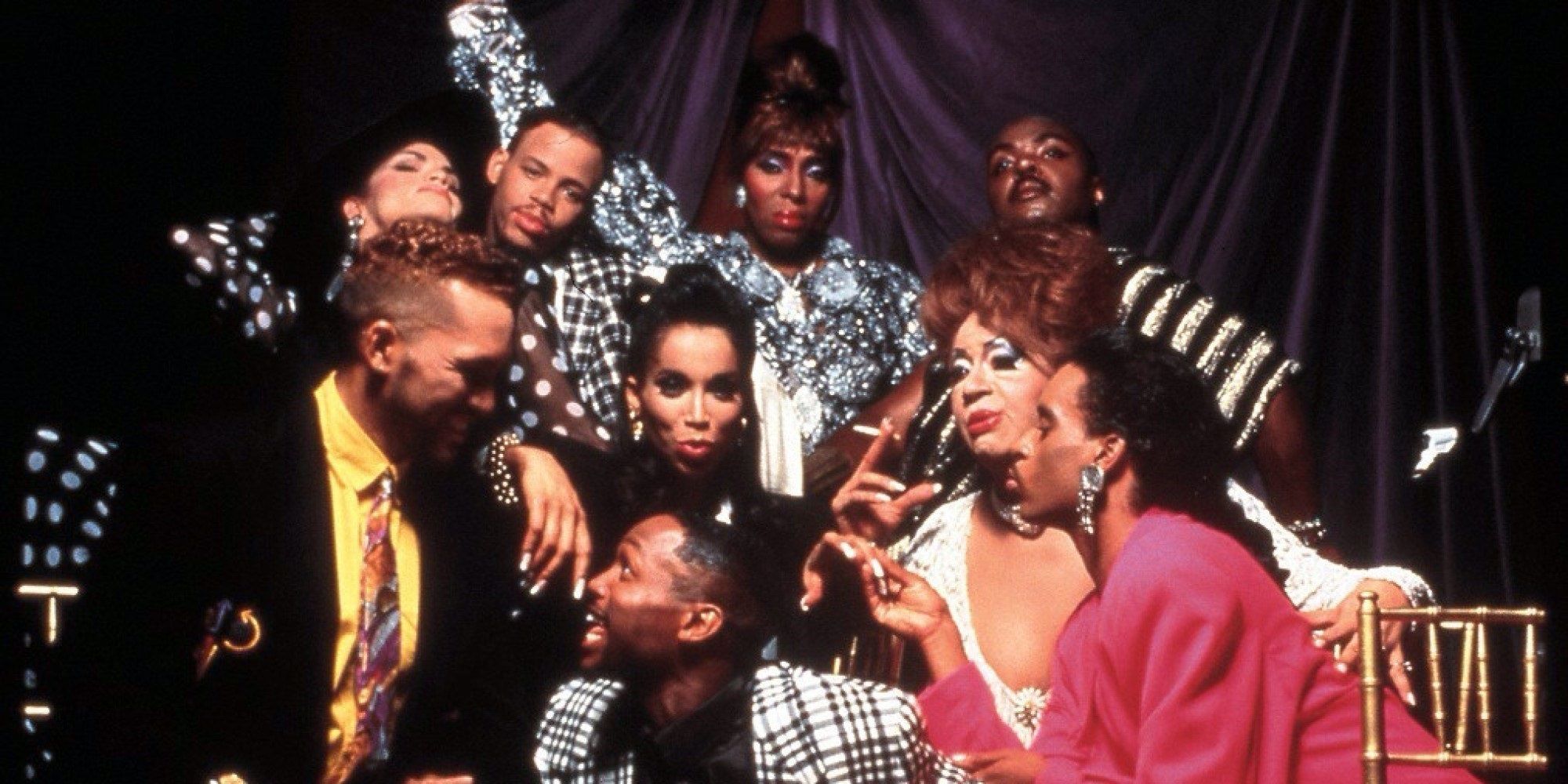The documentary genre is a more varied one than many people give it credit for. As a type of film, documentaries do usually aim to inform or educate about some kind of non-fiction story or topic, but that’s not their sole purpose. Some aim to evoke certain feelings or experiences more than anything else, others aim to present an argument or point of view in a persuasive manner, and others are mostly concerned with simply entertaining audiences the way a work of fiction might. Furthermore, some documentaries aim to do a combination of the above, or maybe even none of the above, instead opting to do something else entirely
Exploring the world of documentary filmmaking can be a truly eye-opening thing to do, and reveal worlds or unique perspectives that aren’t as easy to explore through other genres. It’s safe to assume that documentary movies will never go out of style, which makes keeping track of the best documentaries out there worthwhile. Some of the best documentaries of all time have been around for decades, while others are more recent, and deal with ongoing, ever-topical issues. The films below aren’t merely good documentaries; they’re largely considered all-timers within the genre, and can all be described quite reasonably as the best documentaries ever. What follows are some of the finest documentary films of all time, ranked below from great to greatest.
30 ‘Bowling for Columbine’ (2002)
Director: Michael Moore
Coming out years before crime documentaries became Netflix’s bread and butter, Bowling for Columbine uses a horrific crime spree as a jumping-off point to explore American culture, and its seemingly unending love of firearms. The event it’s all framed around is the Columbine High School massacre of 1999, which claimed more than 20 victims.
In one of the best movies of 2002, Michael Moore made arguably his most passionate and emotional movie with Bowling for Columbine, with the editing and presentation making the arguments put forward quite persuasive. It’s in-your-face and uncompromising as a documentary, and it works well as something that clearly wants to start a conversation about a serious topic.
bowling for columbine
- Release Date
- October 9, 2002
- Director
- Michael Moore
- Cast
- Jacobo Arbenz, Mike Bradley, Arthur A. Busch, George Bush, George W. Bush, Michael Caldwell
- Rating
- R
- Runtime
- 120
Watch on Tubi
29 ‘Sans Soleil’ (1983)
Director: Chris Marker
Sans Soleil is a documentary that’s hard to summarize, and has a rather experimental approach to the format/genre. It has little by way of narrative or a direct argument that it wants to present, instead being an artistically presented odyssey through a woman’s abstract thoughts, often relating to the meaning of life and human existence.
Sans Soleil feels broad and open to interpretation, but it’s the kind of thing where someone could watch it and have it fully click, gaining an entirely different understanding than other viewers. This might make Sans Soleil something of an acquired taste, but it’s worth at least one watch for those who appreciate unconventional and adventurous documentary movies.
Watch on Criterion
28 ’13th’ (2016)
Director: Ava DuVernay
Standing as one of the most important cultural/political documentaries in recent memory, 13th is a difficult yet essential watch. It tackles the U.S. prison system with a particular focus on the racial inequality present within it, tying the way prisons function in modern times to the way slavery functioned back during the nation’s earlier days.
It might be a difficult thing for some viewers to hear and grapple with, but 13th is persuasive and remarkably good at presenting the case for this claim. It’s all assembled amazingly well, and makes for the kind of film that wants to frustrate, get people thinking, and have viewers reassess what they thought they knew. In these ways, 13th is a resoundingly successful documentary.
13th
- Release Date
- October 7, 2016
- Director
- Ava DuVernay
- Cast
- Melina Abdullah, Michelle Alexander, Jelani Cobb, Gina Clayton
- Rating
- TV-MA
- Runtime
- 100 minutes
Watch on Netflix
27 ‘Gimme Shelter’ (1970)
Directors: Albert and David Maysles, Charlotte Zwerin
It’s no secret that Martin Scorsese loves The Rolling Stones, having directed his own documentary about them and using their songs throughout his films. He seems particularly fond of the song “Gimme Shelter,” which is also the name of this 1970 documentary about The Rolling Stones, focusing on one particularly infamous concert they performed in 1969.
Gimme Shelter is one of the few concert movies that could be described as nightmarish, because even if you enjoy some of the music on offer, the stark presentation of a tragic event is ultimately what’s most memorable. It’s an intense watch that’s probably not for everyone, but it certainly stands as one of the most distinct – and harrowing – music documentaries of all time.
Watch on Max
26 ‘Man on Wire’ (2008)
Director: James Marsh
Somehow functioning as both a documentary and a heist movie at the same time, Man on Wire tells a wild true story that was also adapted into a feature film with 2015’s The Walk. It’s about daredevil/tightrope walker Philippe Petit, and the way he managed to execute a stunt in 1974 that involved walking between the two towers of the World Trade Center, which had then only recently been built.
Man on Wire‘s pacing makes it feel more dynamic and thrilling than many other documentaries out there, and some of the footage/photographs captured prove awe-inspiring to look at. It’s artistically presented and genuinely exciting, serving as both a psychological exploration of a rather unique man while also celebrating the absolutely wild feat he managed to pull off.
Man on Wire
- Release Date
- July 25, 2008
- Director
- James Marsh
- Cast
- Philippe Petit, Jean François Heckel, Jean-Louis Blondeau, Annie Allix, David Forman, Alan Welner
- Rating
- PG-13
- Runtime
- 94
Watch on Hulu
25 ‘Grey Gardens’ (1975)
Directors: David Maysles, Albert Maysles, Ellen Hovde, Muffie Meyer
For better or worse, Grey Gardens feels like a proto-reality TV show, arguably leading the way for the genre to exist in all its wild, uncomfortable, and sometimes exploitative glory. This is because Grey Gardens simply observes two real-life people who live strange lives, and may or may not be exaggerating their odd behavior because cameras are present.
The two women at the center of Grey Gardens are relatives of Jackie Kennedy Onassis, and they live in a large yet rundown house, and have very isolated lives. It’s an unsettling and uncomfortable film that blurs the line between documentary and drama, but ultimately one that’s proven influential within the genre, and a somewhat haunting watch that has resonated with many viewers since its 1975 release.
Watch on Max
24 ‘They Shall Not Grow Old’ (2018)
Director: Peter Jackson
There have been many great films about the First World War, and among them would have to be They Shall Not Grow Old. It was released on the 100th anniversary of the conflict’s end, and uses colorized and meticulously restored footage to depict the harrowing experience of trench warfare in a way that’s never been shown before in previous WW1 documentaries.
It was an ambitious project directed by Peter Jackson, and though getting the footage to look so striking would have taken a great deal of work, the results speak for themselves. They Shall Not Grow Old isn’t an easy watch, but it is an essential one, and recontextualizes a century-old conflict by presenting an emotional and intimately personal look at the horrors of war.
Watch on Netflix
23 ‘Life of Crime: 1984-2020’ (2021)
Director: Jon Alpert
Life of Crime: 1984-2020 may have a bit of a clunky title, but as a film, it’s anything but clunky. It’s the third and final installment in a series of documentaries that follow several individuals who engage in petty crime and/or struggle with drug addictions, with it all being filmed in an uncompromising and very raw fashion.
This 2021 film spends one hour recapping the first and second documentaries in the series (which covered the 1980s and 1990s respectively) before moving on to what happened to the subjects at its center in the 21st century. Life of Crime: 1984-2020 sheds light on a group of people who’ve seemingly been forgotten by society, showing their flaws while also being empathetic. It’s devastating, proving hard to watch, and maybe even harder to forget.
Watch on Max
22 ‘The Act of Killing’ (2012)
Director: Joshua Oppenheimer
Though The Act of Killing isn’t a horror movie by any means, it feels more brutal and terrifying than most could ever hope to be. It covers a difficult subject in a unique yet stomach-churning way, focusing on the Indonesian mass killings of 1965-1966 which saw somewhere between 500,000 and 1 million people being killed (mostly people associated with communism, or believed to be).
It follows various people who participated in these killings more than 40 years on from the events, with the filmmakers getting these individuals to recreate what they did through the guise of “making a film” in the hope they’ll realize the brutality of their past actions. The Act of Killing is a daunting look at the dark side of human nature, as well as a terrible period in history that’s still in living memory for many people living today.
The Act of Killing
- Release Date
- August 31, 2012
- Director
- Joshua Oppenheimer, Anonymous, Christine Cynn
- Cast
- Anwar Congo, Herman Koto, Syamsul Arifin, Ibrahim Sinik, Yapto Soerjosoemarno, Safit Pardede
- Rating
- NR
- Runtime
- 115
Watch on Peacock
21 ‘The Thin Blue Line’ (1988)
Director: Errol Morris
The true crime genre has experienced a boom in the last five to 10 years, and on a streaming service like Netflix in particular, it seems difficult to avoid documentaries about crime. Many documentaries that are definable as true-crime owe a great deal to 1988’s The Thin Blue Line, which was revolutionary for documentary filmmaking as a whole.
It follows the investigation surrounding the murder of a police officer in Dallas, criticizing certain aspects of how it was done, and arguing that the primary suspect might not have been as guilty as detectives believed. The Thin Blue Line was influential enough to impact criminal proceedings, ultimately highlighting how powerful a well-argued and intelligently presented documentary can be.
Watch on Tubi
20 ‘Harlan County, USA’ (1976)
Director: Barbara Kopple
While Harlan County, USA may be almost 50 years old, it remains relevant, and will continue to feel vital for as long as workers don’t feel fairly compensated for their work. It focuses on a specific 1973 strike in Harlan County, but the ideas and struggles explored here are relevant to various industries and groups of workers.
The “USA” part of the title could be referring to Harlan County, or it could be read as emphasizing that the sort of conflict here is something felt throughout the USA, back in the 1970s and to this day, too, with the recent Writer’s Guild of America strike. The presentation in Harlan County, USA is simple, no-nonsense, and ultimately persuasive, ensuring it stands as a classic – and essential – work of documentary filmmaking.
Watch on Max
19 ‘The Times of Harvey Milk’ (1984)
Director: Rob Epstein
Biographical stories can often be told more powerfully through documentaries than in traditional feature films (though the former isn’t likely to earn as many Oscar nominations as the latter). This is demonstrated by 1984’s The Times of Harvey Milk, because while the 2008 film Milk covers similar ground and is compelling, seeing it play out in a documentary is even more powerful.
As the title implies, this documentary covers the life and career of Harvey Milk – both cut tragically short by his assassination in 1978. The Times of Harvey Milk aims to celebrate what he accomplished for gay rights in America while mourning his untimely passing, and serves as an emotional and extremely well-presented look at Milk and his life.
Watch on Max
18 ‘Free Solo’ (2018)
Directors: Jimmy Chin, Elizabeth Chai Vasarhelyi
Viewers with acrophobia should stay well away from Free Solo, because it can be genuinely hard to watch for anyone who has even a slight fear of heights. It follows Alex Honnold as he attempts to climb a 3000-foot-high rock face by himself, and without the safeguards of ropes or safety gear.
As far as “man versus nature” documentary movies go, this is easily one of the greatest of all time, and in a way, ends up being more heart-racing than the vast majority of blockbuster thrillers out there (even the great ones). As far as adrenaline-rush documentaries go, few can compete with what Free Solo pulls off.
Free Solo
- Release Date
- September 28, 2018
- Director
- Elizabeth Chai Vasarhelyi, Jimmy Chin
- Runtime
- 1 hr 40 min
Watch on Disney+
17 ‘American Movie’ (1999)
Director: Chris Smith
A heartwarming and funny documentary, American Movie is one of the essential documentaries about the filmmaking process of the last few decades. It centers on independent filmmaker Mark Borchardt and his attempts to complete his movie, an unusual horror film about addiction and demonic cults called Coven.
It’s one of those films that’s likely to hit home for anyone who’s undertaken a daunting creative project before, or even those who’ve ever dreamed of fulfilling their creative desires. It celebrates art – no matter the budget or the technical qualities – and even for non-creatives, is likely to provide plenty of entertainment value thanks to its humor and down-to-earth charms.
Rent on Apple TV
16 ‘Hearts of Darkness: A Filmmaker’s Apocalypse’ (1991)
Directors: Eleanor Coppola, Fax Bahr, George Hickenlooper
While American Movie shows the struggles of independent filmmaking, Hearts of Darkness: A Filmmaker’s Apocalypse – released at the other end of the 1990s – looks at the struggles of big-budget filmmaking. It follows the infamous production of Apocalypse Now, a film that ended up being a classic, but was plagued with just about every problem under the sun before release.
For as harrowing as the psychologically tense and violent war film is, Hearts of Darkness makes the fight to get the film made look equally brutal and mentally devastating. Francis Ford Coppola and the rest of the cast and crew went to hell and back to make one of the greatest films of the 1970s, and this documentary captures that nightmarish production in stark, eye-opening detail.
Hearts of Darkness: A Filmmaker’s Apocalypse
- Release Date
- September 6, 1991
- Director
- Fax Bahr, George Hickenlooper, Eleanor Coppola
- Cast
- Rona Barrett, Sam Bottoms, Marlon Brando, Colleen Camp, Doug Claybourne, Eleanor Coppola
- Rating
- R
- Runtime
- 96
Rent on Apple TV
15 ‘The Beaches of Agnès’ (2008)
Director: Agnès Varda
Agnès Varda was one of the greatest and most creative French filmmakers of all time. She was known for both her feature films and her documentary work, and while titles like Cléo from 5 to 7 and Vagabond are her best-known when it comes to the former, 2008’s The Beaches of Agnès is probably her greatest achievement for the latter.
It plays out like a visual autobiography, with Varda reflecting on her youth, her filmmaking career, and her relationship with fellow French filmmaker Jacques Demy. The Beaches of Agnès is touching, entertaining, visually dazzling, and thought-provoking, all thanks to Varda’s unique outlook on life, and could serve as a good introduction to the filmmaker’s immense body of work.
Watch on Criterion
14 ‘Man with a Movie Camera’ (1929)
Director: Dziga Vertov
Without Man with a Movie Camera, the entire documentary format may look entirely different today. It’s likely one of the most important and influential documentaries of all time, using inventive visuals and creative editing techniques to show how life was in the Soviet Union during the 1920s.
Beyond that premise, there isn’t really a whole to this silent film. Yet the style is what makes it dazzling and engaging to this day, and even if it doesn’t grab all modern viewers, surely everyone can recognize its significance for the documentary format as a whole. At only 68 minutes long, documentary fans don’t exactly have an excuse not to at least give it a shot.
Watch on Vudu
13 ‘Woodstock’ (1970)
Director: Michael Wadleigh
Woodstock is far from the only iconic concert film (more on those below), but it covers what many would argue was the most significant live music event of all time. That was 1969’s Woodstock Music & Art Festival, an event that went for three days, saw 32 different musical acts perform, and was attended by more than 400,000 people.
A huge film is needed to capture such a large-scale event, and Woodstock is more than up to the task. The theatrical cut runs for over three hours, and a director’s cut runs for almost four, with it capturing some iconic live music (including performances by Jimi Hendrix, Janis Joplin, and The Who) as well as documenting what the festival was like for those attending, and the ways organizers dealt with certain issues that came about while the festival was underway.
Rent on Apple TV
12 ‘Stop Making Sense’ (1984)
Director: Jonathan Demme
Stop Making Sense isn’t just one of the best films of 1984; it’s right up there as one of the best concert films of all time. It documents new wave band Talking Heads at their creative and commercial peak, going through an excellent tracklist over 88 glorious, upbeat, entertaining minutes.
There isn’t much of a message or story here, of course, but the way it’s shot, edited, and paced is certainly more intricate than most concert films. Stop Making Sense is the gold standard for how music documentaries about concerts should look and feel, and an essential watch, regardless of whether you’re a big Talking Heads fan.
Watch in Cinemas
11 ‘Paris Is Burning’ (1990)
Director: Jennie Livingston
Despite only running for about 70 minutes, Paris Is Burning covers many years, focusing on the New York drag scene throughout much of the 1980s. It looks at a subculture that was likely underground and unseen for many people during that time, and gives those who belong to it a chance in the spotlight.
Paris Is Burning holds up as one of the most important documentaries of the 1990s, and one that is still relevant today, even if these sorts of subcultures are a little more well-known today. It shows the power that documentary films have when it comes to raising awareness for different people and groups, and for doing so here with an LGBTQ subculture, Paris Is Burning is a landmark.
Watch on Max
Source link


